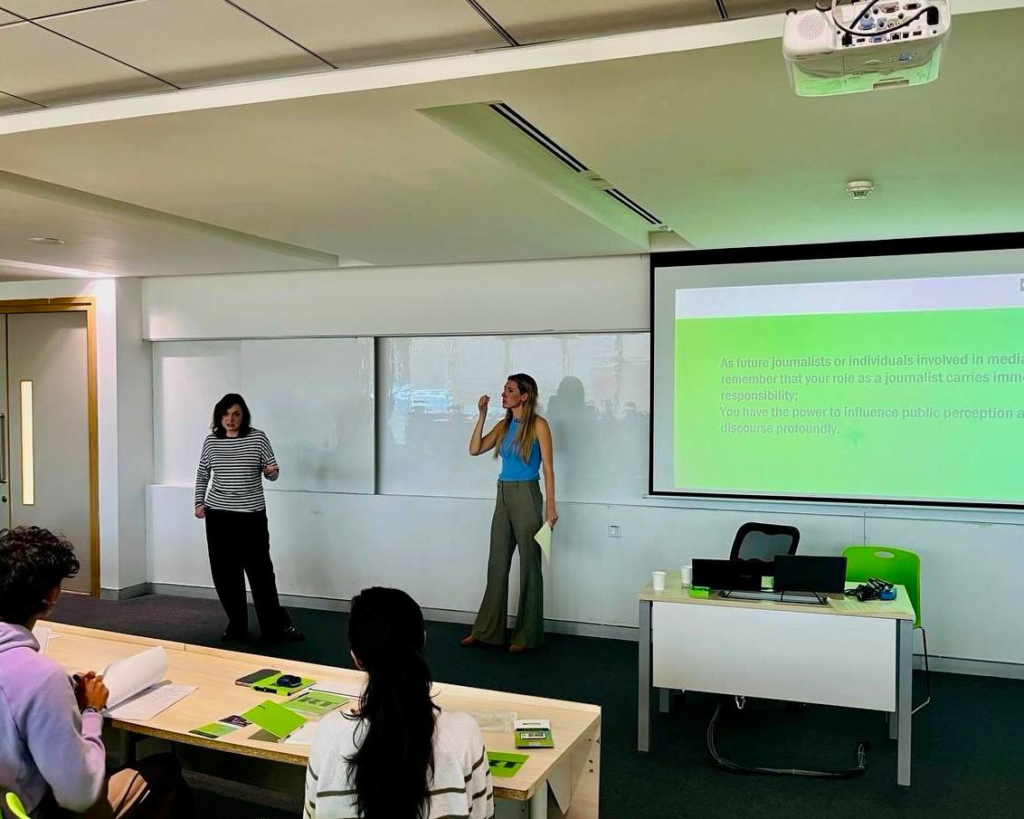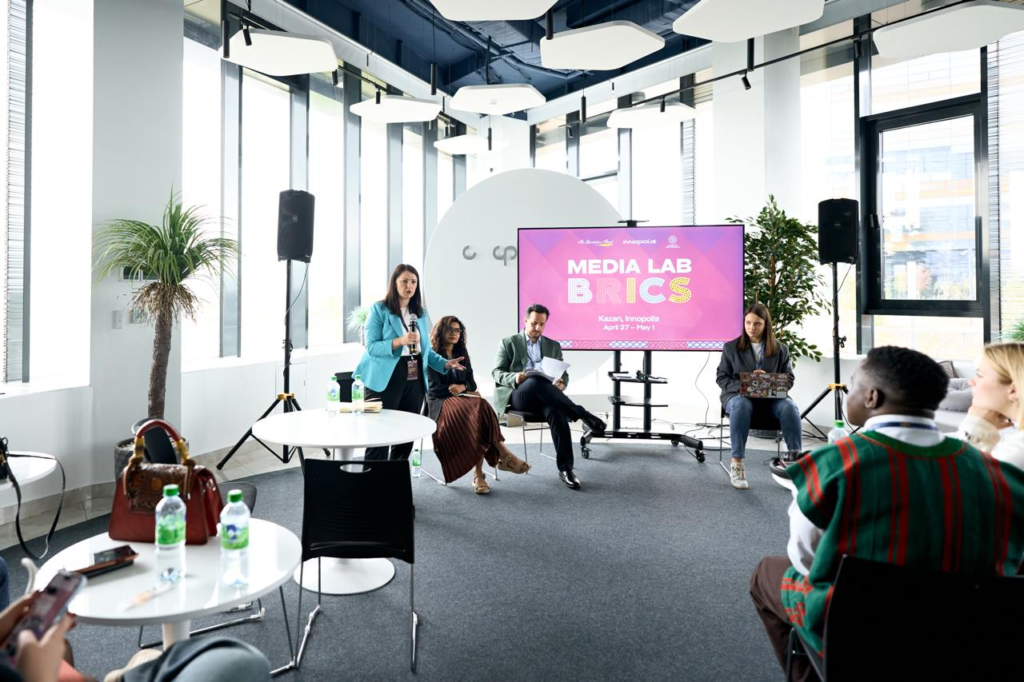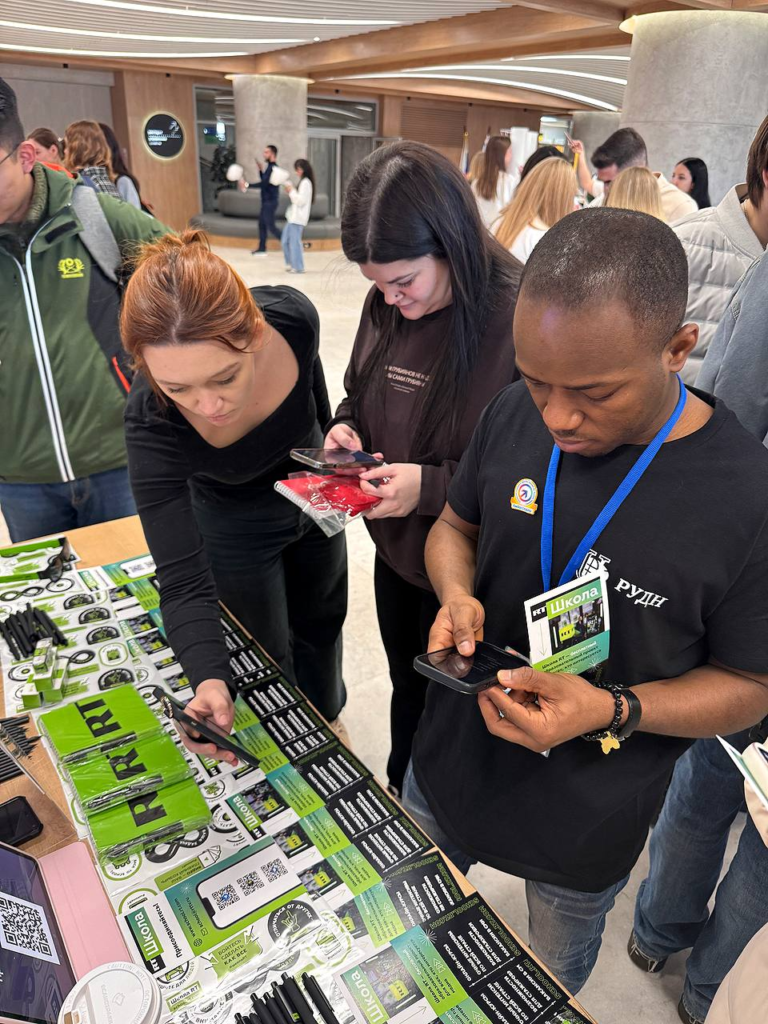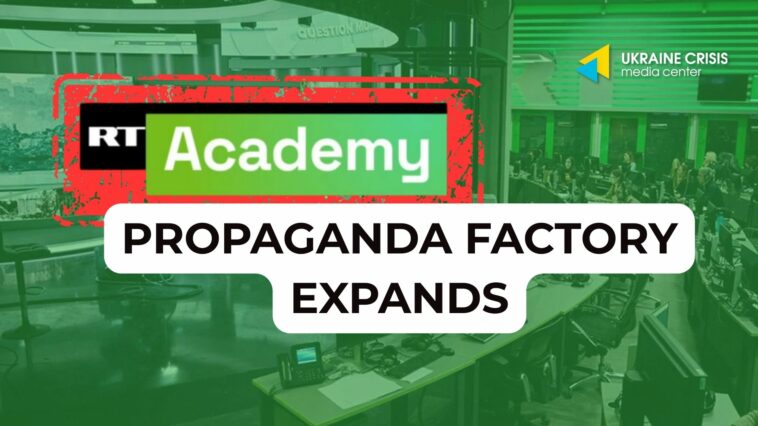Last year, the Hybrid Warfare Analytical Group reported on the activities of RT Academy (Russia Today) – a Kremlin-sponsored propaganda “factory” aimed at cultivating foreign media communities aligned with Moscow’s narratives.
RT, a longstanding mouthpiece of Russian disinformation, launched this training project for young journalists and media professionals from various countries in April of last year. Since then, its free online-courses – taught by RT staff – have reached approximately 2,000 participants, primarily from Africa, Southeast Asia, India and China.
In the current year, RT already held a six-week online course in “International Journalism” for a mixed English-speaking audience of 300 people from 50 countries. RT also plans to run four additional courses in 2025, targeting journalists from India, China, African countries, and Arabic-speaking regions. Based on prior participation, the total number of foreign trainees could reach 4,000 by the end of the year.
The program is expanding. Notably, RT is planning its first Arabic-language program. Besides English, instruction will be available in French, Chinese, and Arabic – reflecting RT’s priority regions of influence.
A notable omission is the absence of a Spanish-language course, despite RT en Español being a top priority alongside RT Arabic. However, the launch of such a course appears to be only a matter of time, given the sustained demand for Russian propaganda content in parts of Latin America.
RT Academy receives broad informational support from Russian foreign institutions engaged in promoting Kremlin soft power globally – including diplomatic missions, Rossotrudnichestvo (federal government agency), and the Gorchakov Fund for Public Diplomacy. Recruitment also includes RT International journalists visiting foreign university journalism faculties or speaking at media conferences.

Funding is not a concern – RT remains a Kremlin propaganda priority, with 79 billion rubles allocated from the Russian federal budget for 2025–2027.
Beyond RT Academy, Russian propagandists are developing several other initiatives using RT’s platform to recruit aspiring media professionals from around the world. A key focus is the BRICS bloc. Under its umbrella, Russia promotes MediaLab BRICS – an educational program for young journalists, bloggers, and students from Brazil, Russia, India, China, and South Africa, organized by the Gorchakov Fund and the Youth Diplomacy Academy.

Russia also offers training visits and internships in RT newsrooms for international students studying media-related fields. One example is the academic program “Media-Information Sphere of Global Politics,” launched by Lomonosov Moscow State University in cooperation with RT, under the Faculty of World Politics.

RT Academy content focuses on applied media skills, including news production, on-camera performance, interview techniques, SMM promotion, and the use of AI.
However, it is essential to recognize that RT-“lecturers” are often cynical or ideologically biased manipulators who have built careers on spreading Kremlin disinformation. RT staff serve a regime that has systematically destroyed freedom of speech and independent media in Russia. Today, they are trying to whitewash the Kremlin’s bloodstained image on the international stage.
Given the nature of RT’s operations, these Kremlin-initiated educational programs have no connection to the development of independent journalism. The real goal of RT Academy is to establish contacts for expanding RT’s global information network. Its graduates may join the RT’s regional branches or promote Kremlin-friendly narratives through their own media projects.
Volodymyr Solovian



